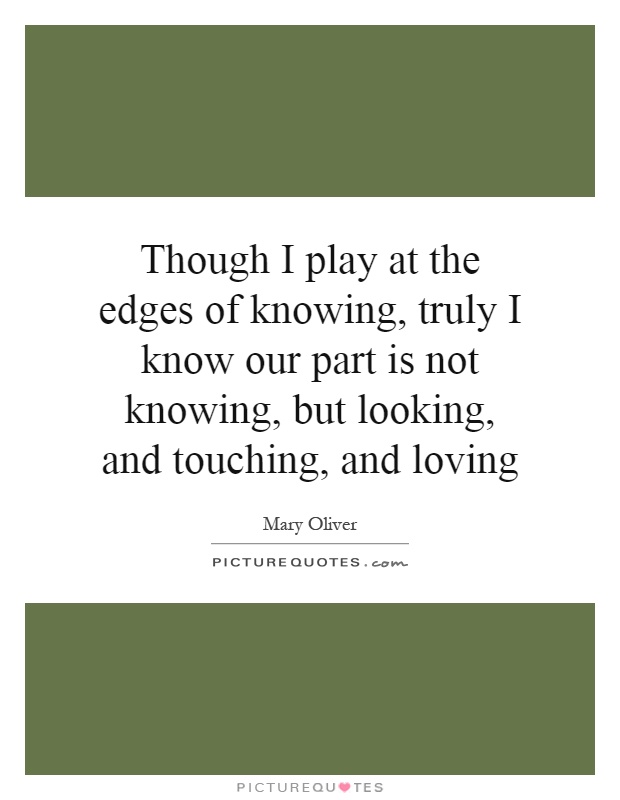Though I play at the edges of knowing, truly I know our part is not knowing, but looking, and touching, and loving

Though I play at the edges of knowing, truly I know our part is not knowing, but looking, and touching, and loving
Mary Oliver, the beloved poet and nature enthusiast, often explored themes of connection, wonder, and the beauty of the natural world in her work. In the quote “Though I play at the edges of knowing, truly I know our part is not knowing, but looking, and touching, and loving,” Oliver captures the essence of her poetic philosophy.Oliver’s poetry is characterized by a deep sense of curiosity and reverence for the world around her. She often found solace and inspiration in the natural world, using her observations of plants, animals, and landscapes to reflect on larger themes of existence and spirituality. In this quote, Oliver acknowledges the limitations of human knowledge and understanding, suggesting that true wisdom lies not in knowing all the answers, but in engaging with the world with an open heart and mind.
For Oliver, the act of “looking, and touching, and loving” is a way of connecting with the world on a deeper level. By immersing herself in the beauty and complexity of nature, she found a sense of peace and belonging that transcended intellectual understanding. In her poems, she often celebrated the simple joys of everyday life, from the song of a bird to the changing colors of the seasons, reminding her readers of the importance of being present and attentive to the world around them.












 Friendship Quotes
Friendship Quotes Love Quotes
Love Quotes Life Quotes
Life Quotes Funny Quotes
Funny Quotes Motivational Quotes
Motivational Quotes Inspirational Quotes
Inspirational Quotes